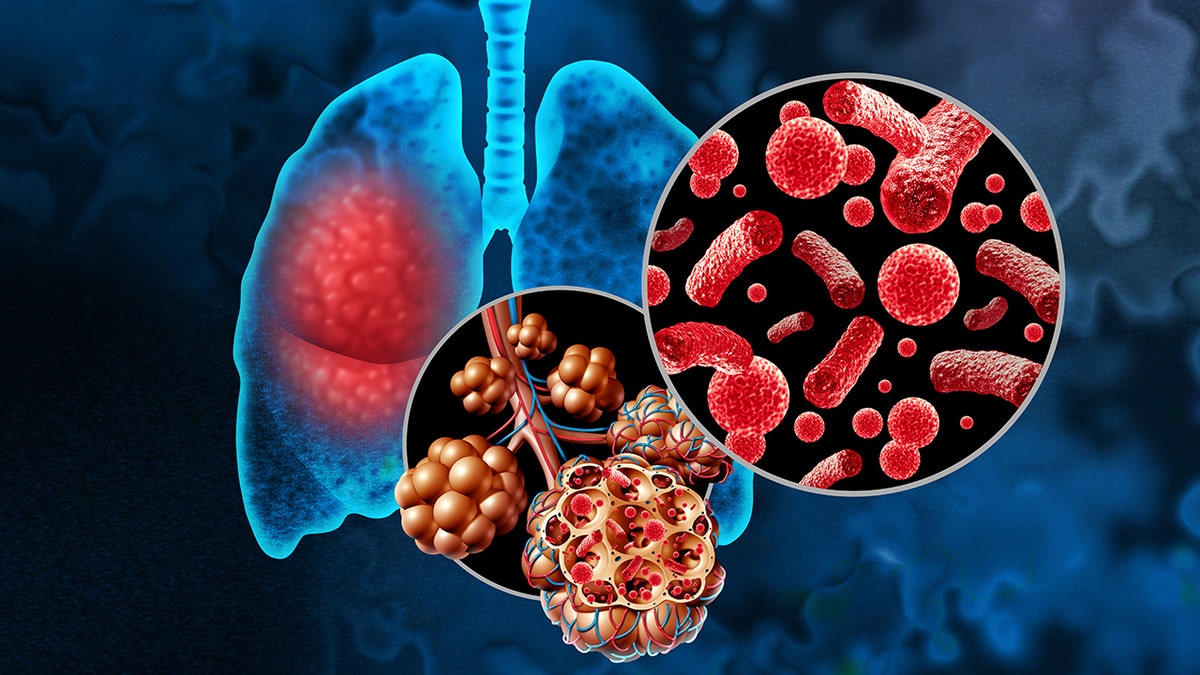Deadly bacterial outbreak infects dozens in city neighborhood as officials sound alarm

NEWYou can now listen to Fox News articles!
An outbreak of bacterial pneumonia has infected dozens of people in New York City, according to health officials.
A total of 58 people have been diagnosed with Legionnaires’ disease, a type of pneumonia caused by the bacteria Legionella.
Two people have died, the NYC Health Department confirmed in an August 4 news release.
DEATHS REPORTED AFTER LEGIONNAIRES’ DISEASE OUTBREAK AT SENIOR LIVING FACILITY
The cluster of cases is concentrated in Central Harlem and bordering communities (zip codes 10027, 10030, 10035, 10037 and 10039).
“Anyone in these zip codes with flu-like symptoms should contact a healthcare provider as soon as possible,” said Acting Health Commissioner Dr. Michelle Morse in the health department’s alert.
Legionnaires’ is usually found in lakes, streams and other freshwater environments.
However, it can grow and spread indoors via shower heads, sink faucets, hot tubs, water features/fountains, plumbing systems and other water systems where conditions are favorable for the Legionella bacteria to grow, according to the Centers for Disease Control and Prevention (CDC).
HIGHLY CONTAGIOUS DISEASE SURGES IN SOME US STATES AMID REPORT OF POSSIBLE FATAL CASE
When people swallow or breathe in droplets of water that contain Legionella, they can potentially become ill with Legionnaires’ disease.
The disease is not typically spread from person to person, per the CDC.

In the case of the New York City outbreak, the health department directed the state to perform remediation for 11 cooling towers that tested positive for the bacteria.
“Legionnaires’ disease can be effectively treated if diagnosed early, but New Yorkers at higher risk, like adults aged 50 and older and those who smoke or have chronic lung conditions, should be especially mindful of their symptoms and seek care as soon as symptoms begin,” Morse added.
Symptoms and risk
Symptoms of Legionnaires’ disease usually show up between two and 14 days after exposure.
The condition usually causes flu-like symptoms, including cough, chills, muscle aches, fever or difficulty breathing.
Some patients may also experience nausea, diarrhea and confusion, the CDC noted.

“The nature of the symptoms is not necessarily what differentiates Legionella from other causes, but history of exposure from ‘human-made reservoirs,’ though this may be hard to discern early on in infection and/or in an outbreak,” said Goodyear.
Those who have any of these symptoms should seek medical attention immediately, the CDC advises.
Groups at highest risk include smokers, people 50 and older, those with chronic lung disease and people who are immunocompromised, according to health officials.
“Other risk factors include advancing age, cardiovascular disease, obesity and compromised immune systems,” Dr. Nathan Goodyear, medical director of Brio-Medical in Arizona, previously told Fox News Digital.
Around 10% of people who contract Legionnaires’ disease will die from complications.
Diagnosis of Legionnaires’ disease is made via chest X-ray, urine test and lab analysis of a phlegm sample.
Most people with the disease will recover with a course of antibiotics.
In some patients, however, serious illness can lead to lung failure or death, per the CDC.
CLICK HERE TO SIGN UP FOR OUR HEALTH NEWSLETTER
Around 10% of people who contract Legionnaires’ disease will die from those complications — and the mortality risk rises to 25% for those who get Legionnaires’ while staying in a healthcare facility.
“Treatment needs to be early and aggressive,” Goodyear told Fox News Digital. “Legionella infection is an intracellular infection that requires antibiotic treatment.”

Antibiotics that are appropriate for Legionella infection include Levofloxacin and Azithromycin.
“Therapy can be prescribed orally in healthy individuals … but intravenous antibiotics often prove to be the initial option for treatment secondary to the pathogenicity of the disease,” Goodyear said.
Prevention strategies
Currently, there are no vaccines for Legionnaires’ disease.
The best strategy to prevent infection is to reduce the growth and spread of the Legionella bacteria.
For more Health articles, visit www.foxnews.com/health
The CDC recommends that building owners and managers use a water management program to reduce the risk.
To prevent serious illness from Legionnaires’, Goodyear recommends that all smokers kick the habit, and also emphasizes the need to “aggressively support” chronic pulmonary disease.
Read the full article here









